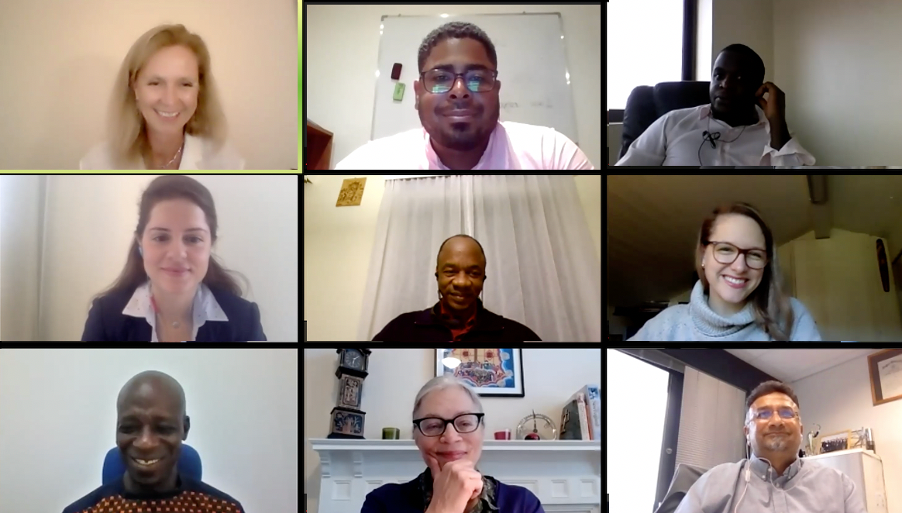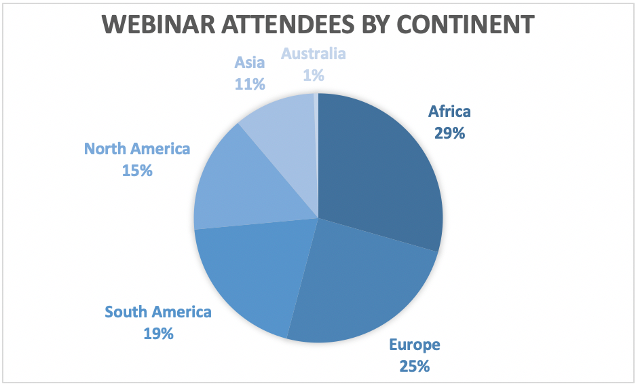🇫🇷 Read this article in French
🇪🇸 Read this article in Spanish

Find out more about our panellists here
“The ultimate goal is to protect, respect and fulfil the human right to sanitation for marginalised communities in a way that is affordable, safe, environmentally friendly, and respects human privacy and dignity”
Strong words from Human Right 2 Water’s Chief Executive Officer, and host of the webinar, Amanda Loeffen. Amanda opened with an introduction of the topic, raising questions as to why the progress needed to provide sanitation for all is not being achieved, and whether there is a practical means to accelerate this process through the introduction of a human rights based approach.
This webinar invited a selection of experts from the sanitation sector and human rights experts to talk about the need for recognition of the human right to sanitation, by service providers and government authorities, such that these standards can be integrated into policies and systems for monitoring the realisation of human rights at a local level.
The first section of the webinar, entitled ‘Sanitation in Practice’, was led by the Toilet Board Coalition and included a series of case studies. Chief Operating Officer, Alex Knezovich provided an insightful perspective into the importance of demonstrating good practices in a human rights-based approach through some of the work of the Toilet Board Coalition. “We have released guidelines for new standards around public toilets, and it is the customer-centric side that aligns with the human rights perspective.” Alex then introduced two entrepreneurs and their organisations who had come through the TBC’s Toilet Accelerator program; JOELEX Uganda Limited and Live Clean Initiatives.
JOELEX Uganda Limited’s Chief Executive Officer Joel Mukisa Makadesh started with an overview of his organisation, which builds Smart-Enabled public toilets in the slums of Kampala, Uganda and the surrounding areas. “JOELEX’s franchise operational model partners with local leaders, landlords and entrepreneurs to operate the facilities.”
Nazir Pandor, Chief Executive Officer of Live Clean Initiatives followed with a summary of his own organisation, of which provides similar services in Zambia. Nazir placed particular emphasis on the importance of a human rights-based approach in their work as he stated, “We see a toilet as essentially the provision of a basic human right. Everyone should have access to a toilet.”
The webinar’s second section, ‘Scaling up the Inclusive Human Rights-Based Approach’, included presentation from a variety of experts from the business, human rights and sanitation sectors.
Francis Daniel Bougaire, Chief Water Policy and Strategy Development Officer at the African Development Bank opened this section with an insight into how the Bank can support the growth and scaling up of sanitation sector businesses. “We partner with governments, private sector and other stakeholders to drive sanitation and hygiene access for the poorest and most marginalised communities.”
Next to speak was distinguished Professor Martha Davis, joining us from Northeastern University in Boston. Professor Davis brought her perspective on government responsibilities for the realisation of the human rights to sanitation. “It is required that the State puts human-rights norms into practice, for example including participation in decision making for those who are affected.”
Joining us from South Africa, Jayant Bhagwan, Executive Manager of the key strategic area of Water Use and Waste Management at the South African Water Research Commission spoke on the concepts of social franchising in securing sustainable O&M of sanitation facilities in schools. “The governance failures in our own systems deny many communities and school children the right to dignified sanitation.”
Human Right 2 Water’s Gabriela Casanova followed with an overview of business responsibilities, and subsequently introduced a tool for sanitation service providers to be compliant with the human rights to sanitation. “The objective of our checklist is to make it easier for businesses to make sure they are fulfilling the human rights to sanitation.” Click here to find these checklists on our website.
The presentations were closed by the Deputy Director of the Water, Sanitation and Hygiene program at Bill & Melinda Gates Foundation, Doulaye Kone. In his presentation, Doulaye covered the importance of the adoption of standards for inclusive sanitation, asking important questions such as “What policies today can guarantee equal access and fundamental rights to water and sanitation?”

Close to 90 attendees and 186 registrants joined us from all over the globe, including Africa, the Americas and Asia.
For those of you who were unable to attend, a recording of the webinar is now available.
Next month’s webinar will deliberate the question, “How can the human rights to water and sanitation create resilience to pandemics such as COVID-19?” The event will be held on the 10th December with further details to be announced shortly.
Find panellist slide presentations here: Alex Knezovich, Joel Mukisa Makadesh, Nazir Pandor, Francis Daniel Bougaire, Professor Martha Davis, Jayant Bhagwan, Gabriela Casanova, Doulaye Kone

